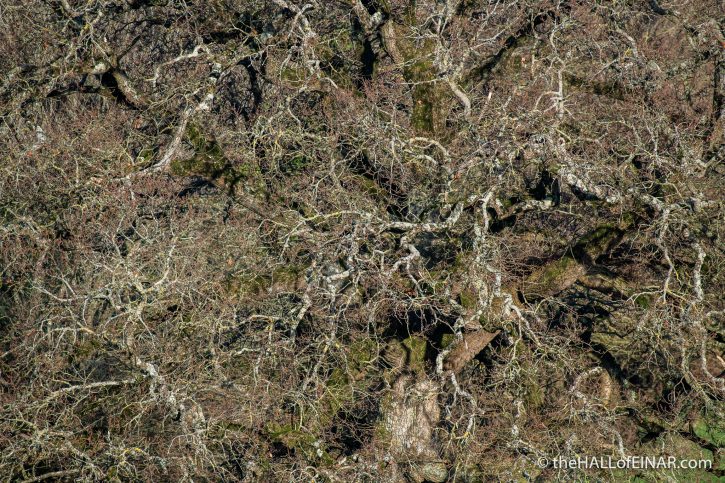Lordly Tree
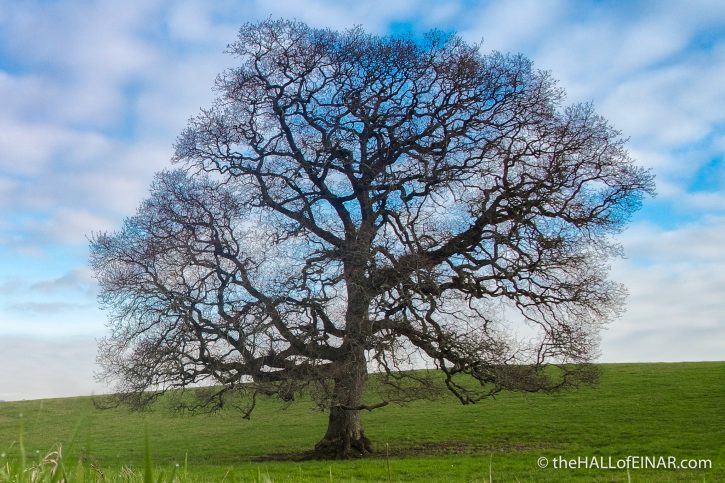
There’s a particularly impressive oak tree in Abbotskerswell in South Devon. As the old joke says, it’s out standing in its field.
It’s surrounded by pasture for livestock and fields of sugar beet, which is winter feed for beef cattle. In the winter many of the fields which surround it are completely bare. There’s not a single plant, not a single invertebrate. There are no mice, no voles and no signs of life. There are just clods of red earth. The use of so-called ‘weedkiller’ across large stretches of land makes farmers richer and our natural life poorer. It’s not just the ‘weeds’ that are killed, it’s the entire chain of life that they support.
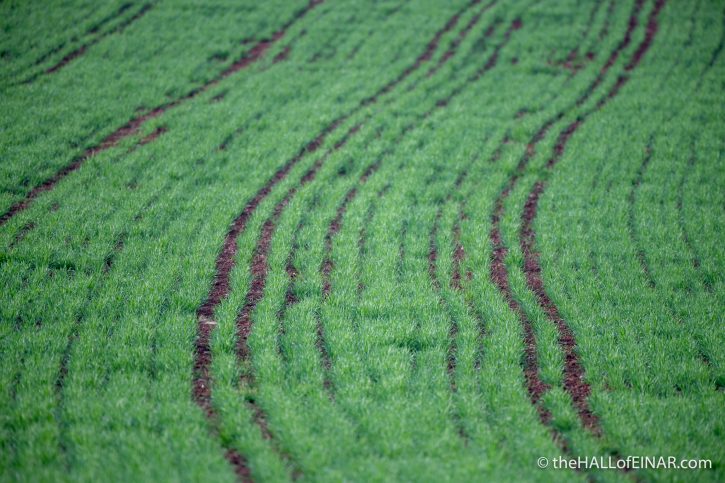
It seems that even the grass here is regimented and sown in rows.
The farming here is an economic success because of the destruction of our natural world. It’s also very unproductive. The amount of water and land used to create a small amount of valuable beef could produce vastly more vegetables. It could be feeding far more people, and feeding them far more healthily.
Life is pushed, poisoned and ploughed to the edges, to the strips and shadows of safety. Here, fungi grow close to thin hedgerow havens.
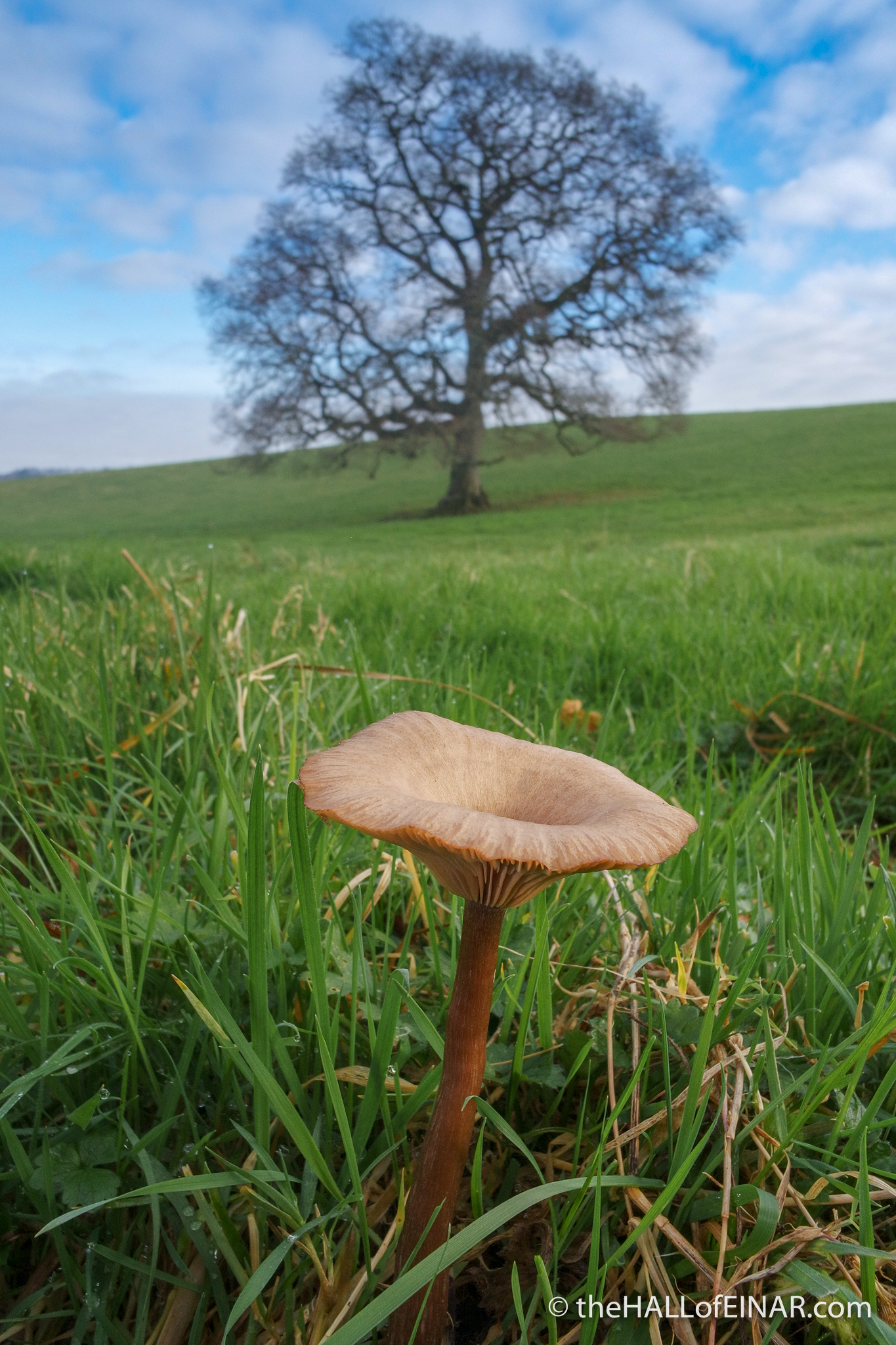
The fields are an artificial green, devoid of wild flowers and the complex mix of life which allows the full diversity of life to thrive.
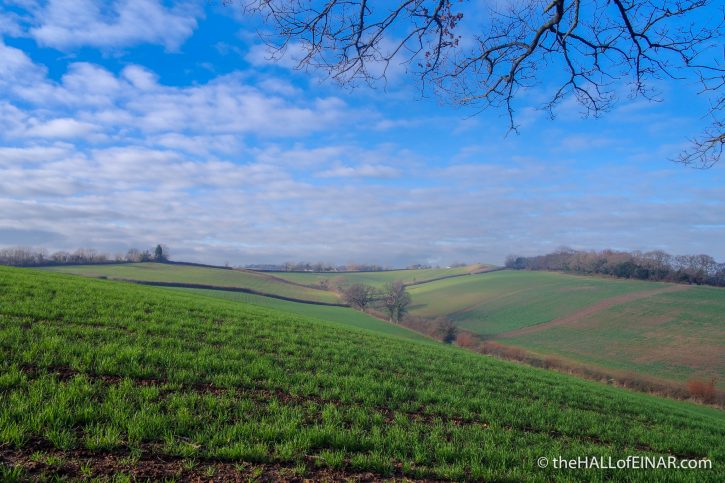
It’s still stunningly beautiful. Here’s what it’s like in summer:
There’s a barn here with a Barn Owl nest box. I’ve spent a few evenings sitting for hours at the other end of the field waiting for a glimpse of a ghostly white shadow to emerge and flit into the night. As I sit there, alone, I think of the 12 million people watching Strictly Come Dancing.
I can’t go any closer to the Barn Owls without a license under Schedule 1 of the Wildlife and Countryside Act 1981 or I could face a £5,000 fine and six months in jail. However, the farmer can sell all this land to developers and they can build thousands of new homes on it. That’s the plan, anyway.
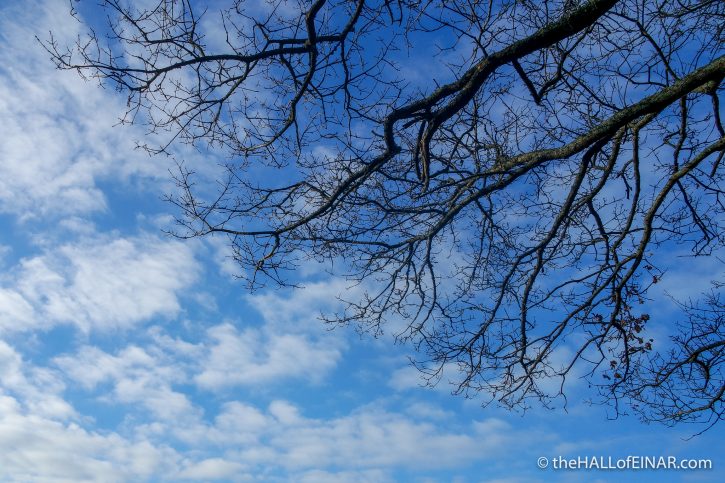
This lordly tree has seen many changes in its lifetime. And so have I.
